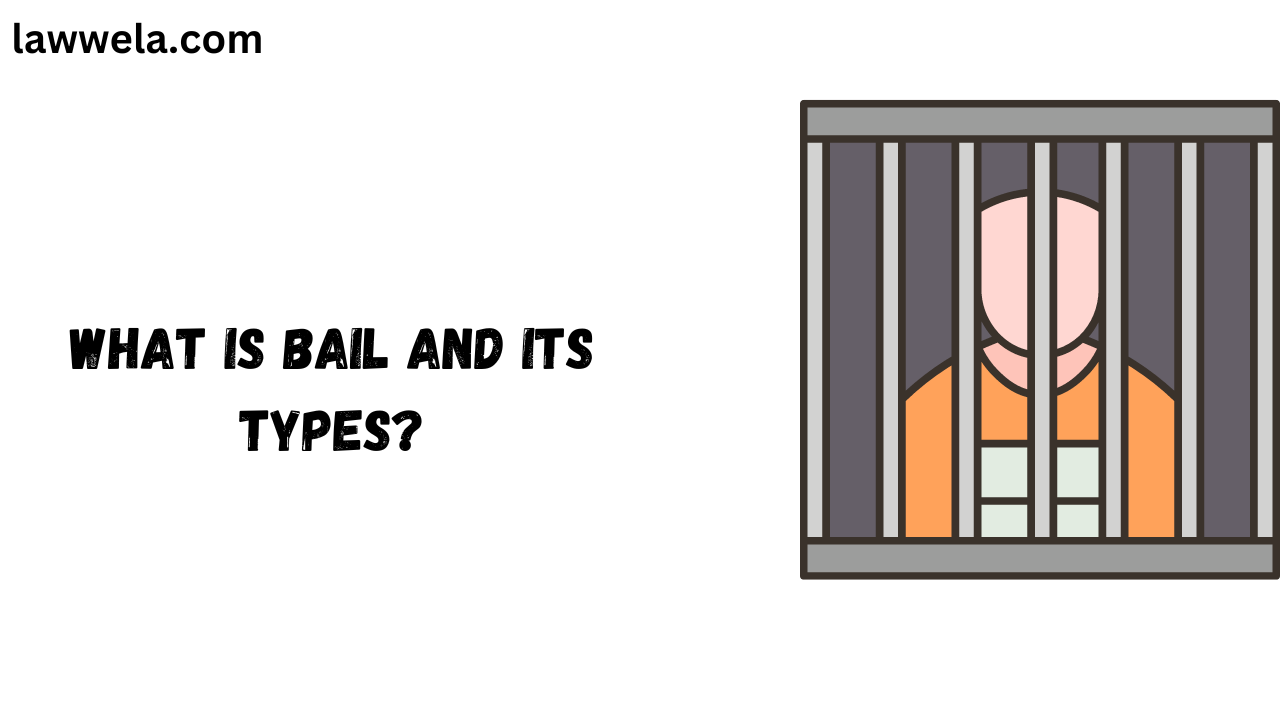Bail is a pre-trial condition on the accused to ensure they will not obstruct the court proceedings. It is condition release of the accused that they will appear in court whenever required. In some other countries, bail implies a bail bond, a deposit of money or property to the court by the accused in return for his release from pre-trial detention. If the suspected person does not return to the court the bail is forfeited and the charges are imposed on him.
What is bail?
The bail is the temporary discharge from the police custody. The accused on bail will be available whenever the court needs him for the investigation of further proceedings. Under the code of criminal procedure bail is not defined. The accused can move free by giving the security bond for bail in court.
Bail bond?
A bail bond is a surety that is given on behalf of the accused. In a security bond, the accused needs the surety of 2 people who can give surety of the accused that he came for further proceedings in the court. They are also answerable to court on behalf of the accused if the accused is not found. There are some charges also added. On that, it is specified that the accused cannot go outside of India.
What is a bail application?
The bail application is a surety bond that is filled by the accused advocate and submitted to the court for the release of the accused. The police arrest the person and produce the accused in the court to ensure that the accused is present during the proceedings in the court. In bail, the accused agreed to present in the court or police station whenever they call without going to jail.
What is anticipatory bail?
In this when a person knows that police will arrest him for something he has done wrong before the arrest, the accused can apply for an anticipatory bail so that they cannot put him in jail. The anticipatory bail will be granted by the session and high court after seeing all the aspects of the case. According to the law, anticipatory bail is first submitted in session court if the session court rejects the bail then the person can challenge this in the High Court of India.
How can an accused apply for bail?
There is a bail bond that is signed by the accused who has to submit some amount that is specified in the bail bond. In bail bond, the accused must have 2 sureties who can guarantee that the accused will come to the court whenever they need him for the investigation of further proceedings.
Types of offences
- Bailable offence- these offences come under section 436 or the procedure for getting bail. It is granted by a police officer or by a magistrate.
- Non-Baibable offence- under sections 437 &439 comes under non-bailable offences in which bail is granted by a session court or high court of India.
Bail can be granted in any type of case?
The bail is given under two types of cases which are mentioned under the Indian Penal Code, Bailable Offence and Non-Bailable offence. Generally, the bailable offence is less serious and the non-bailable is a serious type of offence. The main purpose of bail is to give every person his right to life and personal liberty. So is bail bond is given by the accused for giving them equal opportunity to be heard.
Section 436(a) of criminal procedure code
Under this section, the period of custody of a person during the trial is mentioned. According to this section if the accused spends half of his punishment in jail and conducts good in jail then the accused can get bail and come to the court for proceedings.
Section 437 of the criminal procedure code
This section deals with non-bailable offences. In which the accused has to submit the bail application for the bail to the magistrate. Now the nonbailable offence is not a matter of right because it is serious.
When bail can be rejected?
In this, the magistrate will check the requirements to grant bail in nonbailable offences. The magistrate can reject the bail if:
- The punishment for the accused is 7 years or above 7 years
- When the case is a matter of sedition
- Crime against the property
- When the accused is involved in abatement or criminal conspiracy
Types
Three types of bail are in India. These bails are used in different types of cases according to their circumstances:
Regular Bail
Under sections 437 and 439 the regular bail is mentioned. The regular bail is used to release the person on bail by filling the security and bail bond. For this, they should have two surety persons for bail. The police can arrest the person if the offence is cognizable.
In regular bail, the accused can get bail by police in the bailable offences but in the non-bailable offence, the session court or high court will make the decision.
Interim bail
The interim bail comes under CrPC. It will give when there is a pendency of any application in the court. It gives for a short period or when the anticipatory bail of regular bail is pending before the court.
Essential Element:
- Interim bail can be extended and it is conditional bail
- It will extend by paying the amount which is required for bail
- After the expiration of bail, if the person fails to pay the amount at the time, they will take the person into custody.
Anticipatory bail
It comes under section 438 of the criminal procedure code. In this bail when a person has an idea that he will be arrested in a criminal case or any person files an FIR against him, then the person files for anticipatory bail in court. If he gets the anticipatory bail the police cannot arrest him. However, the person has to appear in the court during the court proceedings.
Conditions
The court ensures some important points at the time of grant of anticipatory bail:
- The offense done by the accused should be bailable
- To apply for anticipatory bail it should be done before the arrest of the accused
- The accused should not be a repeat offender
- After anticipatory bail, the accused cannot leave the country without permission
Refund of bail security
When the accused applies for bail, he takes a security that will return him after the case is completed in court. But if the accused person does not fulfill the condition of the court, the security money will not be returned to him.
When the accused person fails to fulfill the court conditions, the court issues a warrant against him and produces that person in court for the charges that apply to him. The court can impose more charges on him for breach of bail.
Conclusion
The concept of bailmant is good for the accused person. Sometimes an innocent person is arrested by police. To give rights to an innocent person so they can save himself from going to jail for many years. Different types of bail are there in India according to their circumstances.


3 thoughts on “What is Bail and its Types?”